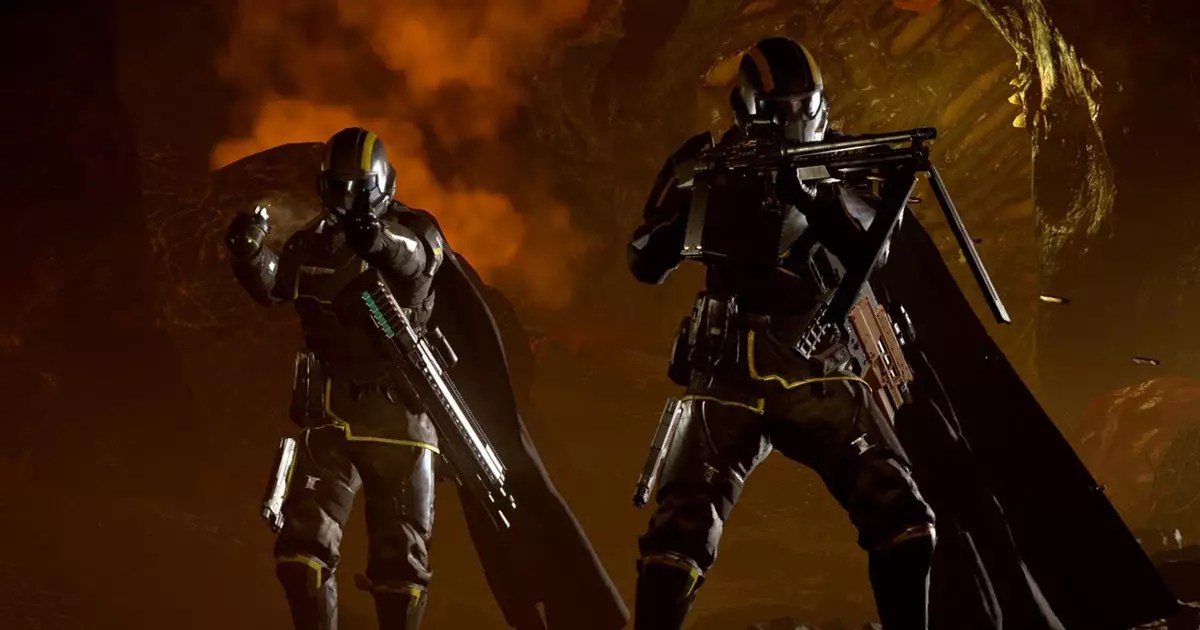Video game development is an intricate dance involving balancing gameplay, fixing bugs, and maintaining player engagement. Despite meticulous planning and advanced technology, developers inevitably face unforeseen issues once their creations are launched into the wild. The recent turmoil surrounding Helldivers 2 and its Rupture Strain enemy units exemplifies the unpredictability developers grapple with, illustrating that achieving flawless game balance is a lofty, often unachievable goal. It also underscores the importance of agility — developers must adapt swiftly when their initial designs stumble. This article examines the challenges faced by Arrowhead Studios during their deployment of the Into the Unjust update, emphasizing the delicate art of balancing game mechanics while recognizing the human and technical limitations inherent in game development.
The Unexpected Power Surge: An Overpowered Enemy in Disguise
The core issue with the Rupture Warriors lies in their overwhelming offensive capabilities, which surfaced after the Into the Unjust update. Designed to introduce diversity and challenge, these enemies instead became a source of frustration due to their ability to strike suddenly and lethally — often catching players off-guard regardless of their skill level. Initially, the problem seemed localized to host players, but the patch released on Tuesday revealed that the issue permeated all players in a session. Such an escalation suggests the initial design underestimated the enemy’s threat level or failed to account for network-related vulnerabilities that exacerbated their lethality.
What’s striking is how the immediate response was to modify the enemy’s core functionality by temporarily removing it from the game. While dismantling a boss or enemy unit may seem drastic, it underscores the developers’ recognition that the challenge was not just unbalanced but also destabilizing gameplay across the board. Here, Arrowhead demonstrated a pragmatic approach: eliminating the problematic enemy temporarily, rather than risking persistent imbalance or ongoing player dissatisfaction. This decision also reveals a broader truth — in the pursuit of challenge and variety, developers often have to prioritize player experience over raw ambition.
Technical Failings Fueling Gameplay Chaos
Adding complexity to the situation was a networking issue linked to the Rupture Warriors’ attack mechanics. According to Arrowhead’s QA lead Jojo, the host-specific quirks were rooted in network stability rather than flawed attack design alone. This revelation casts light on the often-overlooked relationship between server infrastructure and gameplay fairness. Even the most carefully crafted enemies can turn into unmanageable threats if underlying technical systems are compromised.
This predicament sheds light on a fundamental truth: game development is not solely about designing compelling mechanics but also about ensuring those mechanics function reliably across diverse player environments. When network issues distort the behavior of AI enemies, the result is an experience that feels unfair and chaotic, alienating players. Arrowhead’s approach — fix the networking issue first, then reassess enemy behavior — demonstrates an understanding that technical stability underpins balanced gameplay. Yet, it also exposes the vulnerability of complex online games where even minor glitches can have outsized impacts on player perception.
Actions in Crisis: The Strategic Retreat of the Rupture Strain
In response to these cascading problems, Arrowhead opted for an interim solution: taking the Rupture Strain units offline until they can be rebalanced and retuned in approximately five weeks. This “pause” might seem severe from a developer’s perspective but is often necessary to restore equilibrium in a living game environment. Removing content temporarily can be a strategic move to prevent ongoing frustration, protect the game’s integrity, and buy time for more comprehensive fixes.
The community’s reaction reveals an interesting dichotomy: many players understand the need to postpone controversial content, viewing it as a sign of responsible development. Others, however, fear that such postponements may diminish the game’s excitement or lead to stagnation. Yet, balancing gameplay isn’t about immediate gratification; it is about creating a sustainable and engaging experience over time, even if that means temporarily shelving fan-favorite enemies. Arrowhead’s transparent communication — openly explaining the reasons behind the decision — aids in building trust, showcasing that developers are willing to prioritize long-term player enjoyment over short-term fixes.
The Path Toward Better Balance: Lessons Learned
The Rupture Strain saga underscores vital lessons in game design and community management. First, even well-intentioned updates can backfire if they introduce elements that aren’t sufficiently tested or tuned for the real-world environment of online multiplayer. Second, technical issues like networking bugs can mirror or amplify gameplay imbalance, blurring the line between design flaws and infrastructural limitations. Developers need to recognize the interconnectedness of mechanics and systems, understanding that comprehensive testing and quick iteration are essential.
More importantly, the episode highlights the importance of humility and accountability. Arrowhead’s decision to pull the units offline demonstrates a willingness to admit mistakes and prioritize player experience. It’s a reminder that no matter how skilled the studio, perfection remains elusive. Instead, the goal should be adaptability, transparency, and continuous improvement — qualities that ultimately foster a healthier gaming community.
In the end, the challenges faced by Arrowhead in managing the Rupture Strain serve as a case study in the messy, unpredictable reality of modern game development. Their temporary retreat reveals an understanding that player trust and systemic integrity are far more valuable than rushing out new content at the expense of core gameplay quality. If developers can embrace this philosophy, future updates will not only be more balanced but will also feel more genuine and player-centric.

